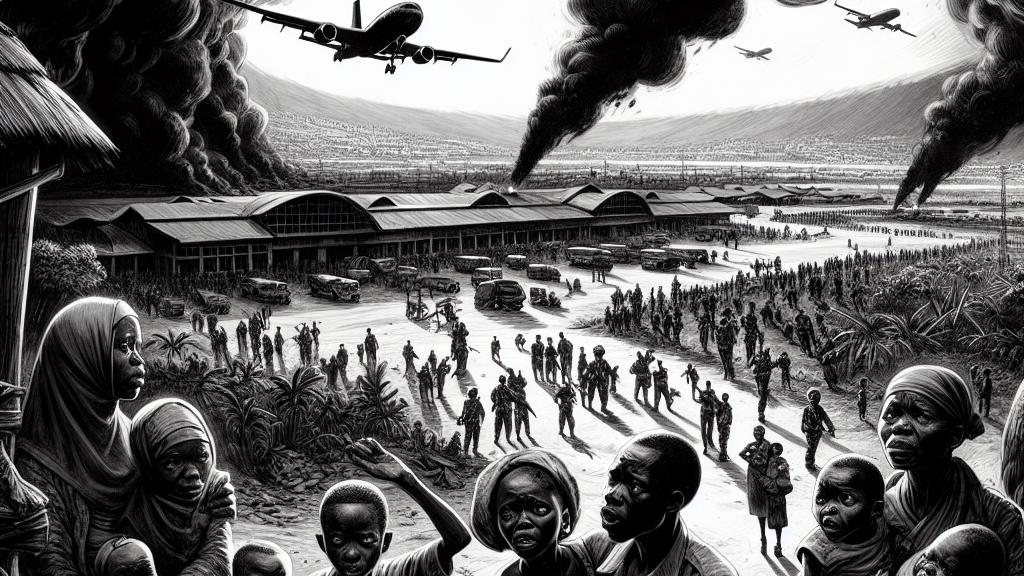Understanding the M23 Rebel Advance in the Democratic Republic of Congo
Overview
- M23 rebels are rapidly expanding their control in eastern DR Congo, causing alarm among the local population.
- The ongoing conflict has resulted in a humanitarian crisis, displacing hundreds of thousands.
- Rwanda's alleged support for the rebels further complicates the situation and threatens regional stability.

The Shocking Advance of the M23 Rebels
In a stunning series of events, M23 rebels have made aggressive strides across eastern Democratic Republic of Congo, recently capturing the airport serving Bukavu, a pivotal city in South Kivu province. This bold move unfolds despite international protests calling for an immediate ceasefire and renewed peace talks. Consider the chilling image: the Congolese army, tasked with defending the people, withdrew with hardly any resistance, leaving citizens in a state of panic. It’s not merely about territory; families are gripped by fear. Parents, with their children clinging to them, face the haunting uncertainty of what tomorrow may bring. Their reality is unsettling—a community once hopeful now feels vulnerable as the shadow of conflict looms ever closer.
The Humanitarian Crisis Worsens
The escalating violence has triggered a devastating humanitarian crisis, forcing hundreds of thousands from their homes in a matter of weeks. Picture a mother, once a pillar of stability, now thrust into uncertainty, her children clinging to her as they flee their once-familiar neighborhood. Many find themselves in makeshift camps, lacking basic necessities like food and clean water. The anguish is palpable; stories emerge of families eating what little can be scavenged, all while dreaming of the comforts of home. Humanitarian organizations are working tirelessly to deliver aid, yet the scale of suffering keeps increasing. It raises an important question: how can the international community step up and ensure that these displaced individuals receive timely assistance and support?
Rwanda's Controversial Involvement
An undeniable complexity in this conflict lies in Rwanda's alleged backing of the M23, which raises significant concerns not just for the DRC but for regional stability throughout East Africa. President Kagame insists that Rwanda's military moves are essential for national security against threats posed by Hutu rebels. However, the Congolese government points fingers, accusing Rwanda of illegal annexations and insurgency support. This intricate web of accusations is troublesome. If the cycle of blame continues, the potential for further conflict increases alarmingly. The pressing need for dialogue among regional leaders has never been clearer, as only through cooperation can lasting peace be achieved. Recognizing the urgent necessity for meaningful negotiations might help in bridging the gap and provide hope for the people suffering amidst this turmoil.

Loading...